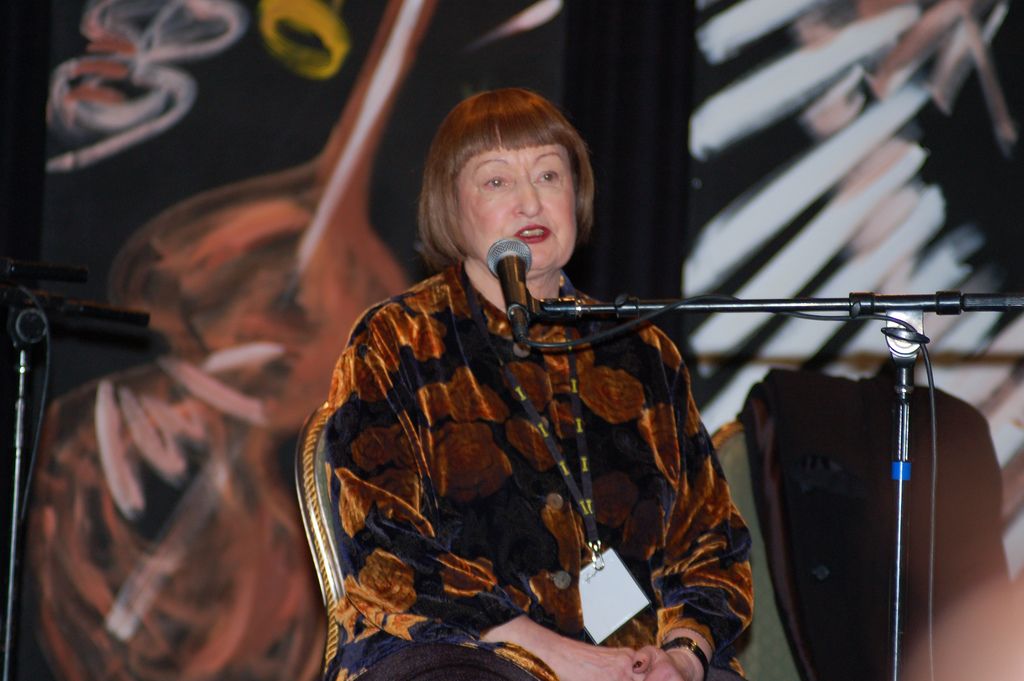
The world recently mourned the passing of Ágnes Keleti, a name that resonates with unparalleled resilience, extraordinary athletic prowess, and an indomitable spirit. At the venerable age of 103, Keleti, a Holocaust survivor and the oldest living Olympic medal winner, departed on a Thursday morning in Budapest, leaving behind a legacy that transcends mere sporting achievement. Her life story is a profound testament to human endurance, demonstrating how one can not only survive unimaginable tragedy but also thrive and inspire millions through sheer will and an unyielding love for life.
Keleti’s journey from a Jewish girl in Budapest, whose dreams were shattered by the looming shadow of World War II, to an Olympic champion in her thirties, is nothing short of awe-inspiring. She accumulated a staggering 10 Olympic medals, including five golds, for Hungary across the 1952 Helsinki and 1956 Melbourne Games. These accolades were not merely won; they were carved out of a life marked by persecution, loss, and the forced interruption of her athletic career, making her triumphs all the more poignant and significant.
This article delves into the initial chapters of Ágnes Keleti’s remarkable life, exploring the early promise of a young gymnast, the brutal interruption of her dreams by the Holocaust, and her tenacious return to the world stage. We examine the moments of heartbreak and triumph that defined her path, culminating in her unforgettable Olympic debut, setting the stage for a career that would etch her name into the annals of sporting history as a symbol of hope and determination.
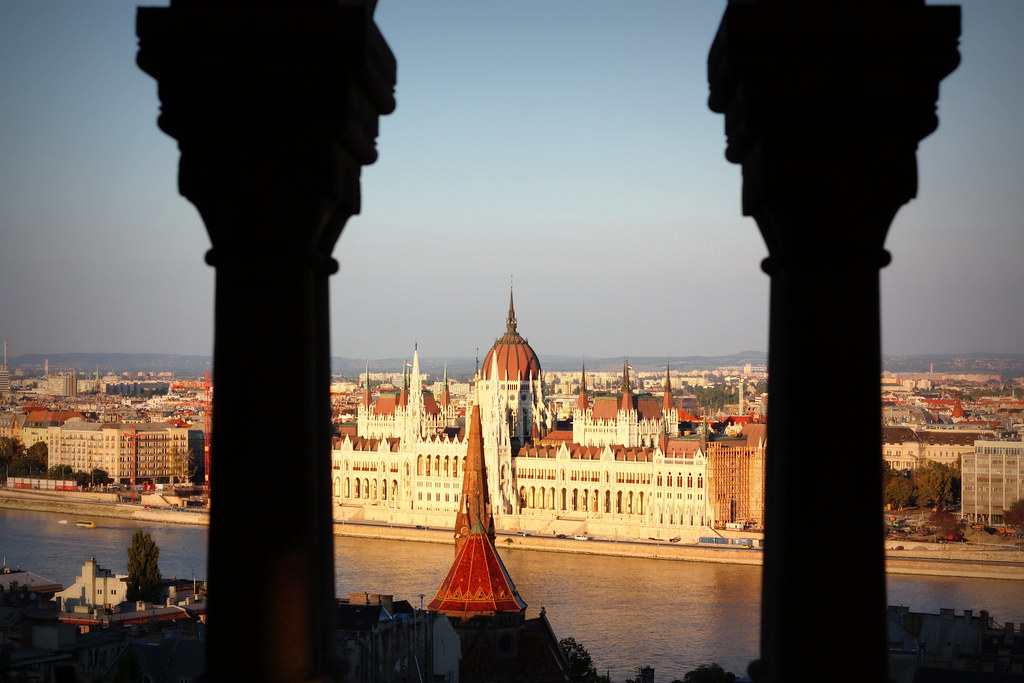
1. **Childhood in Budapest and Early Sporting Promise**Born Ágnes Klein in the vibrant city of Budapest in 1921, Keleti’s early years were rich with cultural and athletic pursuits. From a tender age, she exhibited a remarkable aptitude for both the physical and the artistic, immersing herself in gymnastics lessons, swimming, and even playing the cello. This blend of disciplines likely contributed to the grace, strength, and rhythmic precision that would define her legendary gymnastics style.
Her burgeoning talent quickly propelled her to the pinnacle of Hungarian gymnastics. By 1937, at just 16 years old, she had already clinched the national championship. Her potential seemed limitless, her path set towards a future adorned with athletic glory.
However, the socio-political climate of the late 1930s was rapidly deteriorating, casting a long, ominous shadow over the dreams of many. After graduating from high school in 1939, Keleti faced an insurmountable barrier. Despite her exceptional capabilities, anti-Semitism, manifested through admissions quotas for Jews, prevented her from pursuing higher education.
This early encounter with discrimination foreshadowed the far greater challenges that lay just around the corner, threatening to extinguish her bright future entirely. Her youthful life was thus a delicate balance of personal aspiration and systemic adversity, a prelude to an unimaginable period.

2. **The Shadow of War: Forced from Gymnastics and Into Hiding**The idyllic days of Keleti’s youth and her promising gymnastics career were abruptly and brutally interrupted by World War II. Germany’s invasion of Poland in September 1939 plunged Europe into a conflict that would derail countless lives. For Keleti, this meant the obliteration of immediate Olympic opportunities, as the 1940 and 1944 Games were cancelled.
The war’s impact on Keleti’s life was swift and devastating. In 1941, due to her Jewish ancestry, she was summarily expelled from her Budapest gymnastics team. This act of blatant discrimination stripped her of her passion and community, signalling the increasingly perilous reality for Jews in Hungary. The world she knew was rapidly crumbling.
As the war intensified and the Nazi regime tightened its grip, the situation in Hungary became dire. The Nazi occupation in 1944 was a pivotal and terrifying moment, unleashing a wave of deportations to death camps. This period, described as when “darkness descended,” marked a profound shift from professional exclusion to an existential threat.
Forced off her team and with her very existence imperilled, Keleti’s focus shifted entirely from winning medals to simply staying alive. The war years were not merely an interruption of her career; they were a harrowing battle for survival, forcing her to abandon her identity and delve into a clandestine existence, a stark contrast to athletic competition.

3. **Surviving the Holocaust: A Test of Identity and Resilience**To escape the escalating persecution, Ágnes Keleti went into hiding in the Hungarian countryside. She assumed a false identity, posing as a Christian girl, a desperate measure that offered a fragile shield against the horrors unfolding. Her survival depended on this assumed persona and the dangerous work she undertook, including employment as a maid and a munitions worker.
While Keleti navigated this perilous existence, her family also faced the brutal realities of the Holocaust. Her mother, Rosza, and sister, Vera, miraculously survived the war, largely due to the courageous intervention of famed Swedish diplomat Raoul Wallenberg. His efforts saved thousands of Hungarian Jews from certain death.
This glimmer of hope, however, was tragically overshadowed by immense personal loss. Her father, Ferenc Klein, along with other beloved relatives, perished at Auschwitz, one of the most infamous Nazi death camps. He was among the more than half a million Hungarian Jews systematically murdered by the Nazis and their collaborators.
Keleti’s survival was a testament to her courage, adaptability, and an extraordinary will to live. Emerging from the Holocaust, she carried the weight of immense loss but also an unshakeable determination to reclaim her life and pursue deferred dreams. Her story embodies not just survival, but the enduring strength of the human spirit.

4. **Post-War Comeback: Rebuilding Life and Renewing Olympic Dreams**As the war concluded, Ágnes Keleti embarked on the challenging journey of rebuilding her shattered life. Despite trauma, loss, and years away from training, her intrinsic connection to gymnastics called her back. It was more than just a sport; it was a pathway to normalcy, a means of reclaiming her identity and finding purpose amidst devastation.
Her return to gymnastics was remarkably swift and triumphant, demonstrating the depth of her talent and discipline. By 1946, she had re-established her dominance, winning her first Hungarian championship since the war’s interruption. This victory was a powerful statement of resilience, a symbol of hope, and a clear signal that her Olympic ambitions, though delayed, were very much alive.
With the Olympic Games set to resume after two cancellations, Keleti was again selected for Hungary’s national gymnastics team. The 1948 London Olympics, the first post-war Games, represented a monumental opportunity for athletes like Keleti to step back onto the global stage, symbolizing a new era of peace and international competition. Her inclusion highlighted her status as a premier gymnast.
Her ability to not only resume but excel in her sport so soon after such profound suffering underscores a phenomenal inner strength. The war had stolen years from her prime, yet her dedication and innate skill allowed her to bridge that gap, setting the stage for what promised to be an emotional and significant Olympic debut.

5. **The 1948 London Olympics Heartbreak**The anticipation surrounding the 1948 London Olympics was immense, especially for athletes like Ágnes Keleti, who had endured years of war-enforced absence. Having re-established herself as a national champion and earned a spot on the Hungarian team, the dream of an Olympic debut, though delayed, finally seemed within her grasp. However, fate had one more cruel twist in store.
The anticipation surrounding the 1948 London Olympics was immense, especially for athletes like Ágnes Keleti, who had endured years of war-enforced absence. Having re-established herself as a national champion and earned a spot on the Hungarian team, the dream of an Olympic debut, though delayed, finally seemed within her grasp. However, fate had one more cruel twist in store.
Just before the competition commenced, a last-minute ankle injury tragically dashed Keleti’s hopes of competing. This devastating setback, occurring on the very precipice of her long-awaited Olympic moment, must have been profoundly disheartening. To have overcome so much, only to be sidelined by an injury, was a testament to the unpredictable nature of an athlete’s career.
While the Hungarian squad admirably finished second in the team competition, securing a silver medal, Keleti herself did not participate due to her injury. Despite being part of the team’s achievement in spirit, she was denied the personal experience of competing and earning a medal with her own performance. It was a moment of collective triumph for her nation, but personal agony for her.
This incident, though a significant blow, did not break her spirit. Instead, it seems to have fueled her resolve even further. The disappointment of 1948 underscored her extraordinary perseverance and commitment, driving her to continue training and maintaining her elite form for yet another Olympic cycle, demonstrating rare tenacity.

6. **Olympic Glory at 31: The 1952 Helsinki Games**Finally, at the remarkable age of 31, Ágnes Keleti made her long-awaited Olympic debut at the 1952 Helsinki Games. In an era where gymnasts typically peaked much younger, her age was an anomaly, yet she defied all conventions. She proved that experience and unwavering dedication could triumph over perceived limitations, competing against athletes often a decade her junior with unparalleled mastery.
Her performance in Helsinki was nothing short of spectacular, marking her as an immediate star. She clinched a coveted gold medal in the floor exercise, an event that held special significance. Years later, she fondly recalled this victory, explaining, “It’s my favourite one because the floor exercise is the place where I do what I want, and I can be myself.” This insight reveals her deep artistic connection to gymnastics, where self-expression was as vital as technical perfection.
Beyond her individual gold, Keleti’s contributions were vital to Hungary’s team success. She secured a silver medal in the team competition, showcasing her consistency and value. Furthermore, she added two bronze medals to her collection: one for the uneven bars and another for the team portable apparatus event. This incredible haul of four medals in her debut Games was a phenomenal achievement, establishing her as a formidable force.
Her Helsinki triumph was more than just medals; it was a deeply symbolic moment. It represented the culmination of years of perseverance, a hard-won victory over the shadows of war and personal setbacks. It was the moment Ágnes Keleti, the Holocaust survivor, truly blossomed into an Olympic legend, setting the stage for even greater achievements to come and inspiring a world eager for stories of hope and triumph.
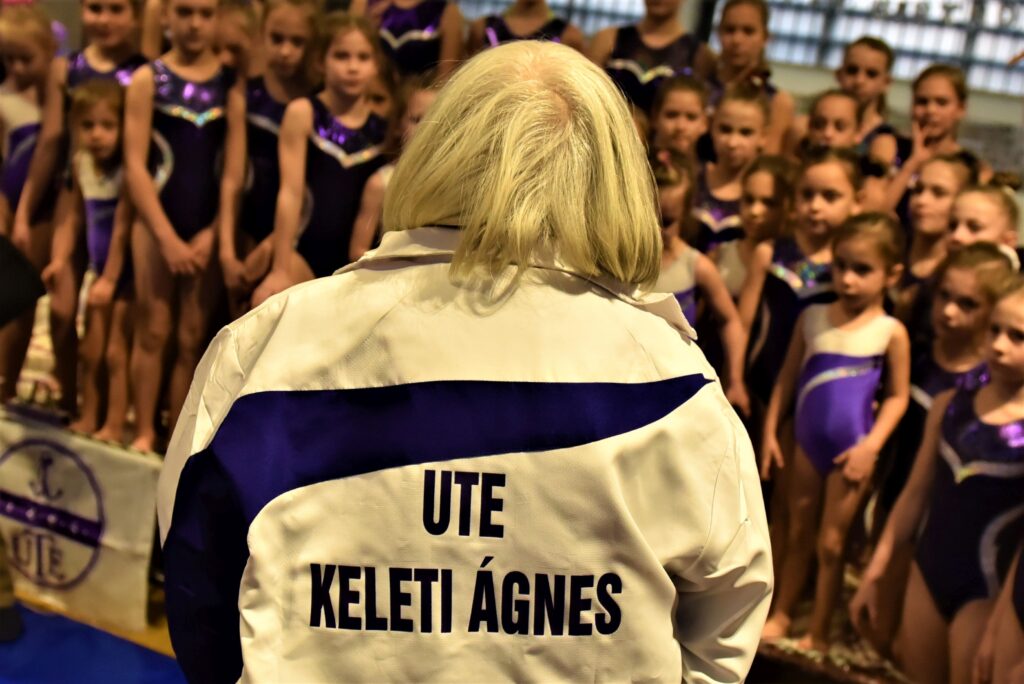
7. **The Pinnacle of Her Career: The 1956 Melbourne Games**Just four years after her impressive debut, Ágnes Keleti arrived at the 1956 Melbourne Olympics not merely as a competitor, but as a seasoned veteran and an undeniable force. At 35 years old, an age considered well past peak for most gymnasts, she defied every expectation, transforming conventional notions of athletic longevity. Her presence alone was a powerful statement, an embodiment of a lifetime’s dedication to her craft and an unyielding will to excel.
The Melbourne Games proved to be Keleti’s crowning moment, a breathtaking display of skill, artistry, and sheer determination that cemented her status as an Olympic legend. She became the most decorated athlete of those Games, a phenomenal achievement given the intense global competition. Her individual performances were captivating, marked by an elegant power that resonated with judges and spectators alike, proving that age was truly just a number.
Keleti’s medal haul in Melbourne was staggering: four gold medals and two silvers. She soared to victory in the balance beam, floor exercise, and uneven bars, demonstrating her versatility and mastery across various disciplines. Furthermore, her exceptional performance in the team portable apparatus event contributed to another gold, underlining her crucial role as a team player.
Adding to her individual triumphs, Keleti also secured silver medals in the individual all-around and the overall team competition. This remarkable collection of six medals from a single Olympic Games, following her four from Helsinki, brought her total Olympic tally to an incredible ten. It was a testament to her enduring brilliance and an inspiring example of how passion and perseverance can lead to unprecedented success, even in the twilight of a storied career.
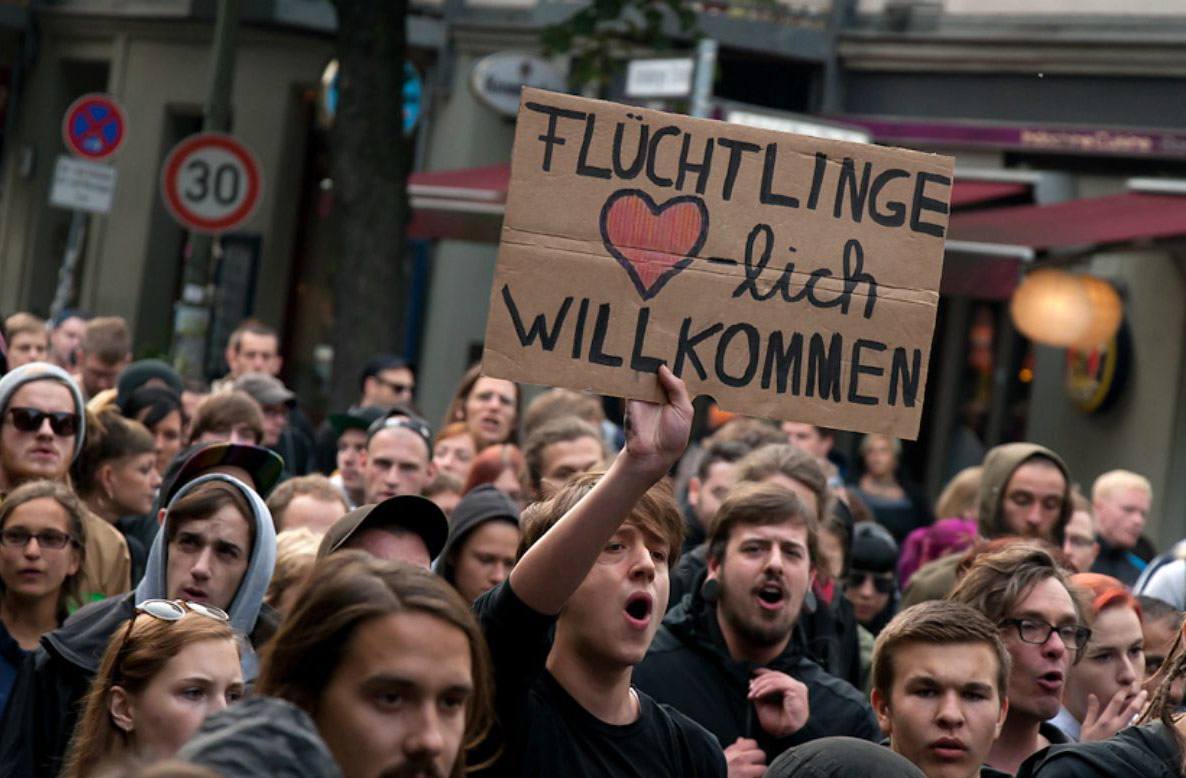
8. **The Hungarian Uprising and Seeking Asylum**The exhilaration of Keleti’s Olympic triumphs in Melbourne was tragically juxtaposed with a harrowing political crisis unfolding in her homeland. As she performed with grace and power on the international stage, the Soviet Union was brutally crushing an anti-Soviet uprising in Hungary. The stark contrast between the global celebration of sport and the violent suppression of freedom cast a long shadow over the Games for the Hungarian delegation.
For Keleti and many other Hungarian athletes, the news from home presented an agonizing dilemma. To return meant facing an uncertain and potentially dangerous future under a newly reimposed oppressive regime. The atmosphere in Cold War Hungary, as Keleti would later reflect, was steeped in “a lot of anti-Semitism,” making the prospect of returning to her native land even more perilous for a Jewish survivor of the Holocaust.
In a courageous act of defiance and a profound personal decision, Ágnes Keleti chose not to return. She was among nearly 50 Hungarian athletes who sought political asylum in Australia after the conclusion of the Games. This decision was not made lightly, but it was a clear declaration of her desire for freedom and safety, reflecting her enduring resilience in the face of political upheaval.
This pivotal moment marked an irreversible turning point in Keleti’s life. It was a choice that prioritized personal liberty and security over returning to her former life and country. The decision to seek asylum highlighted the extraordinary pressures faced by athletes caught in geopolitical conflicts, transforming her from a national sports hero into a refugee seeking a new beginning on a different continent.
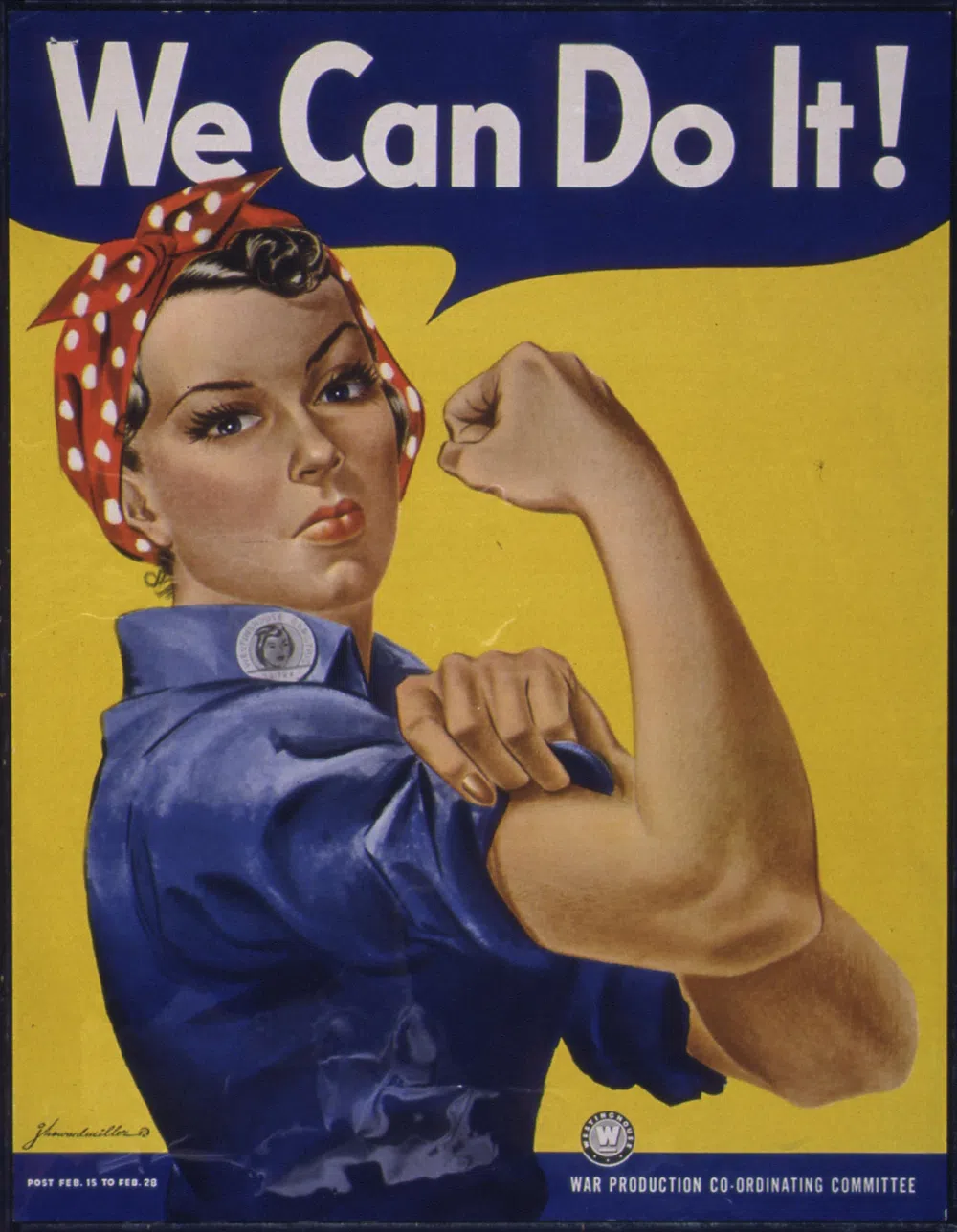
9. **Immigrating to Israel and Building a Gymnastics Legacy**Following her decision to seek asylum in Australia, Ágnes Keleti embarked on yet another transformative journey, immigrating to Israel in 1957. This move was not just a change of scenery; it represented a profound personal and professional commitment to a young nation. In Israel, she found a new home and a new purpose, channeling her immense experience and passion into cultivating the sport she loved.
Upon arriving in Israel, Keleti immediately immersed herself in developing the country’s nascent gymnastics programs. Her arrival was a monumental event for Israeli sports, providing an invaluable resource in a nation eager to establish its athletic identity. She became a pivotal figure, laying the foundational groundwork for future generations of gymnasts and helping to shape the very culture of the sport.
Keleti’s work primarily centered at the Wingate Institute for Physical Education and Sport in Netanya, a leading national center for physical education and sports training. Here, she dedicated herself to training aspiring gymnasts, imparting not only her technical expertise but also her profound understanding of discipline, perseverance, and the artistic expression inherent in gymnastics. Her influence extended beyond individual athletes, elevating the overall standard of the sport in the country.
Her commitment to Israeli gymnastics was long-lasting and far-reaching. She took on the crucial role of coaching the Israeli national women’s gymnastics team, a position she held with dedication and distinction until the 1990s. Under her guidance, Israeli gymnastics programs flourished, benefiting immensely from her Olympic-caliber insights and her unwavering belief in the potential of her students.

10. **A Lifelong Trainer and Coach: Inspiring Generations**Even after her competitive career concluded and well into her later years, Ágnes Keleti remained an active and influential figure in the world of gymnastics. Her passion for the sport was inextinguishable, and she derived immense satisfaction from mentoring and inspiring young people. She believed deeply in the value of physical fitness and the joy of movement, advocating for these principles throughout her remarkably long life.
Keleti’s dedication was legendary; she was known to be spry enough to do leg splits well into her 90s, a testament to her lifelong commitment to physical well-being. This incredible vitality served as a living example to her students and countless others, proving that an active lifestyle could extend far beyond conventional expectations. Her continued agility was a visual representation of her enduring philosophy.
She expressed profound pride in her ability to influence young people to take up gymnastics and embrace physical fitness. For Keleti, it was more than just teaching routines; it was about instilling a love for movement, self-expression, and the discipline that enriches life. Her mentorship extended beyond the physical, often sharing her life lessons about resilience and looking forward.
Reflecting on her life and career, Keleti famously shared her guiding principles. On the eve of her 99th birthday, she declared, “The past? Let’s talk about the future. That’s what should be beautiful.” This forward-looking perspective, coupled with her advice to “Not to concentrate about the winning… but to do it out of love,” perfectly encapsulated her joyous and positive approach to both sport and life. When asked about her two sons, Daniel and Rafael, from her marriage to Robert Biro, she once said, “My children were just two more gold medals,” highlighting her profound love and sense of accomplishment in her family life.
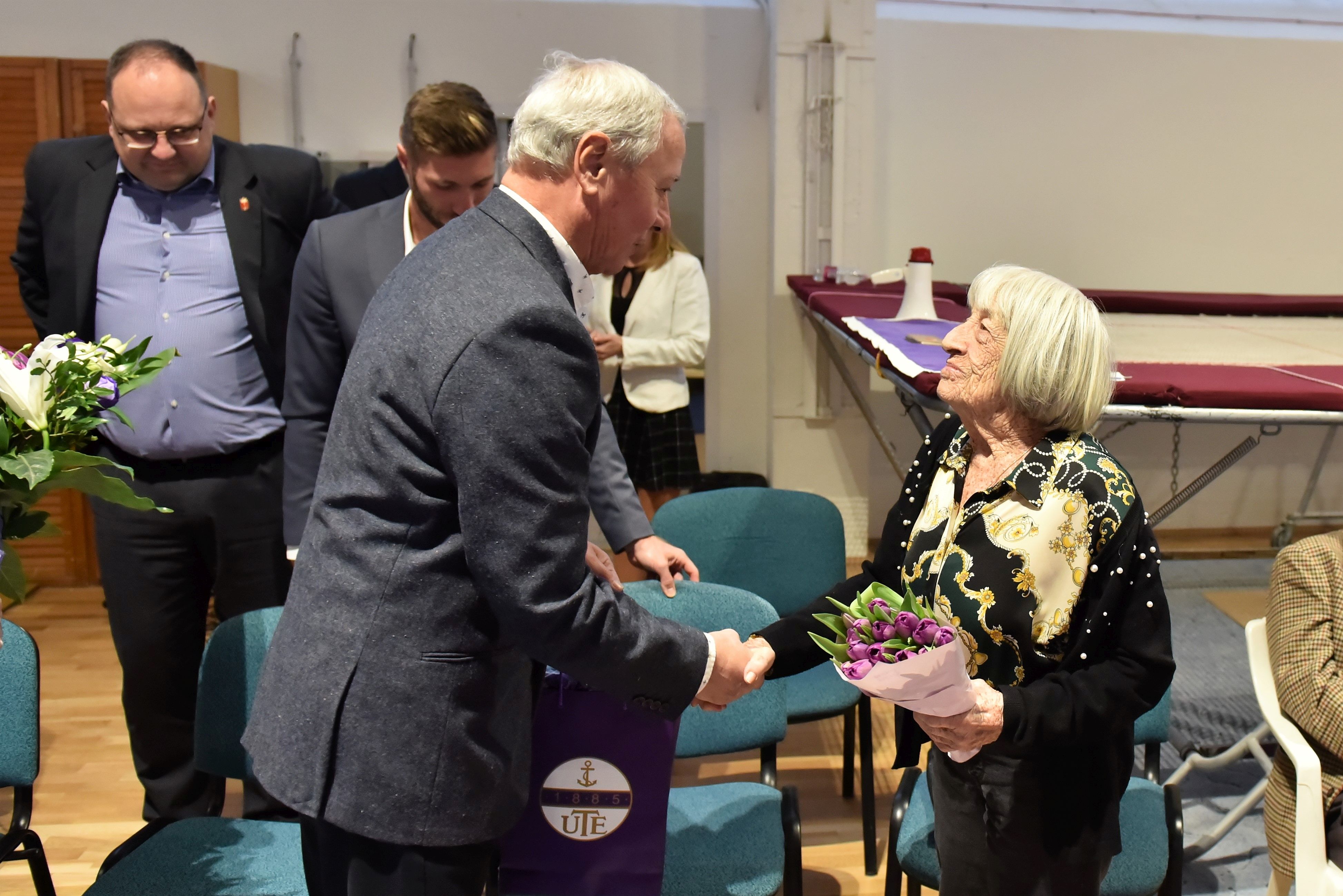
11. **Accolades and Enduring Recognition**Ágnes Keleti’s extraordinary life and career did not go unnoticed, earning her numerous accolades and widespread recognition across the globe. Her contributions to gymnastics and her inspiring personal story were celebrated by various prestigious institutions, ensuring her legacy would endure for generations. These honors underscored her profound impact on both the sporting world and beyond.
In 2001, Keleti was deservedly inducted into the International Women’s Sports Hall of Fame, a testament to her groundbreaking achievements and her role as a pioneer for women in athletics. The following year, her name was further etched into history with her induction into the International Gymnastics Hall of Fame, recognizing her unparalleled skill and competitive excellence as a gymnast. These inductions solidified her place among the pantheon of sporting greats.
Her native Hungary also recognized her immense contributions, naming her one of the country’s 12 “Athletes of the Nation” in 2004. This distinguished honor acknowledged her ten national all-around gymnastics championships, in addition to her Olympic exploits, demonstrating her consistent dominance in her sport over many years. It was a fitting tribute from the nation she had represented with such distinction.
Perhaps one of her most significant honors came in 2017 when she received Israel’s highest civilian award, the Israel Prize. The citation eloquently described her as “one of the originators of artistic gymnastics in Israel and led the sport for over 50 years.” This award beautifully acknowledged her pivotal role in building a new sporting culture in her adopted homeland, a legacy as profound as her Olympic medals. Her five gold medals also placed her tied for fourth place on the Olympic list for women’s gymnastics, alongside other legendary figures like Polina Astakhova and Nadia Comaneci.
Read more about: 14 Jaw-Dropping Moments From The ACM Awards That Had Us All Doing A Double Take (Seriously, Keith Urban Was There!)

12. **Philosophy of Life and a Legacy of Resilience**Beyond the medals and the records, Ágnes Keleti’s most enduring legacy is her profound philosophy of life, forged in the crucible of unimaginable hardship and tempered by an unwavering optimism. Her words offer a window into the mind of a woman who chose joy and vitality over despair, even after surviving the Holocaust and navigating political turmoil. She epitomized a spirit that refused to be diminished.
On the eve of her 100th birthday, Keleti shared a remarkable perspective: “These 100 years felt to me like 60.” She added, with characteristic warmth, “I live well. And I love life. It’s great that I’m still healthy.” This vibrant outlook, echoed in her sentiment, “You’ve got to love life and always look at the good side,” revealed a deep-seated appreciation for every moment, a powerful lesson for all.
Her approach to gymnastics itself was a reflection of this philosophy. She once confessed, “For me, sports was really just a way to see the world.” This unique perspective allowed her to compete without the burden of excessive pressure. “Maybe that’s why I never got nervous. People said they got scared before competitions. That never happened to me. Gymnastics was just a part of my life,” she explained, highlighting her intrinsic joy in the act of movement and self-expression.
Keleti’s story is a testament to the sheer power of human will and the enduring strength of the human spirit. IOC President Thomas Bach aptly summarized her impact, stating, “She will be remembered forever for her inspirational story. Ágnes Keleti has demonstrated the power of strong determination and courage to overcome tragedy when she, born to a Jewish family, survived the Holocaust and went on to win ten Olympic medals after World War II, five of them Gold. This is truly awe-inspiring.” Her life serves as an extraordinary beacon of hope, demonstrating that even after enduring the darkest chapters of history, one can not only survive but also flourish, inspire, and leave an indelible mark on the world.
Read more about: Beyond the Laughs: Meet John Candy’s Incredibly Talented Actor Kids and His Artistic, Private Wife
As we reflect on the incredible journey of Ágnes Keleti, who lived a century filled with both profound tragedy and unparalleled triumph, her passing at 103 marks the end of an era. Yet, her spirit, her indomitable courage, and her vibrant zest for life will continue to resonate. She remains a radiant symbol of hope, a testament to the resilience of the human spirit, and a reminder that true victory lies not just in medals, but in the unwavering pursuit of one’s passions and the ability to inspire a brighter future, no matter the odds. Her legacy is not merely etched in history books; it lives on in the hearts of those she touched and the generations she inspired to embrace life with love and determination.

